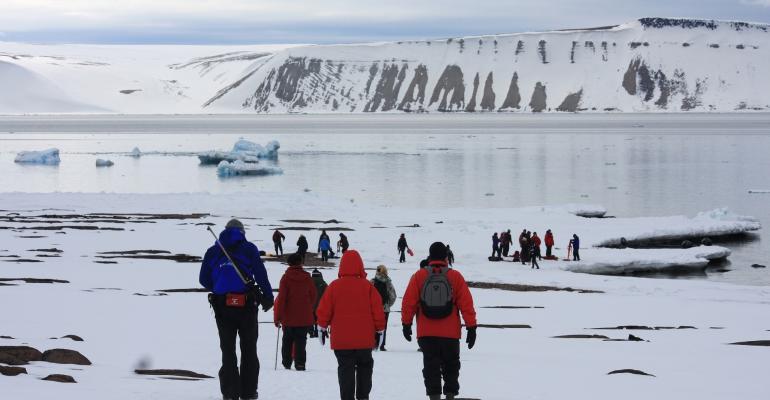AECO is the Association of Arctic Expedition Cruise Operators and IAATO is the International Association of Antarctica Tour Operators.
The conference theme is 'Evolution and new challenges in the polar tourism industry.'
The three-day event includes sessions on growth management, technological developments, safety standards, operational development, citizen science and field staff qualification.
The Polar Field Staff Conference gathers guides, expedition leaders and operations managers working for AECO and IAATO with the aim of supporting the two associations’ joint mission of advancing safe and environmentally responsible travel in the polar regions.
'It’s a chance to discuss the practical issues that staff are facing out in the field, but it’s also an opportunity to weigh in on the larger perspective of polar tourism,' AECO executive director Frigg Jørgensen said.
According to Jørgensen, with greater interest in Arctic and Antarctic itineraries, managing growth will be an important topic. 'It is in the industry’s interest to ensure sustainable growth. AECO and IAATO are continually developing guidelines and raising standards to promote safe and responsible tourism. Our members have decades of polar field experience, and their expertise is one of our best resources as we prepare for growth,' she said.
The conference also highlights what's being done for tourism to have a positive impact in the polar regions. One example is the many citizen science initiatives that enable polar visitors and crew to contribute to research projects, such as collecting data for whale identification or sea-ice monitoring.
'Involving visitors in polar research is not only good for science, it also gives them a deeper understanding of the polar regions and the need to protect these unique and globally important areas,' IAATO executive director Damon Stanwell-Smith said.
The conference program and speakers are available here.
Copyright © 2024. All rights reserved. Seatrade, a trading name of Informa Markets (UK) Limited. Add Seatrade Cruise News to your Google News feed.


